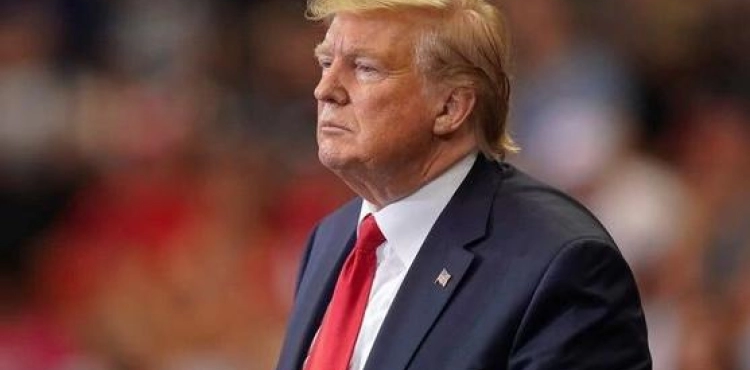Responding to reporters´ questions on Wednesday on the runway of his giant airliner, US President Donald Trump highlighted the thorny decision he faces and swinging back between war and peace options. Trump at one point threatened to order the "final option" of a strike against Iran in response to attacking oil facilities in Saudi Arabia, but the next moment, he spoke of the mistake the United States made when it got involved in the Middle East wars, and welcomed a visit from Iran´s president To the United States.
To help look at these options, Trump on Wednesday appointed a new national security adviser, Robert O´Brien, the State Department´s chief hostage negotiator. But when Trump spoke to reporters, so loudly that they could hear him amid the roar of the presidential jet engines, he appeared as a general commander looking for a way to be tough, but without pulling the trigger.
"It´s very easy to attack," Trump told reporters. "But if you ask Lindsay (hawkish senator Lydney Graham of South Carolina), ask him, ´What is the intervention in the Middle East?´"
Republican Sen. Graham, a hawkish Republican, said on Tuesday that "economic sanctions against Iran have not succeeded in deterring them, so we must take further steps and not show the United States as the weakest party" in this confrontation, calling for a strike. Iran, which angered the US president.
"So we have a disagreement about that, you know, there is plenty of time to do some tough things," Trump said at a press conference on Wednesday.
The Trump team has developed a range of alternatives without retaliatory military strikes with bombs or missiles, including a new round of sanctions to tighten the screws on the Iranian economy and deploy more US troops in the region as a deterrent against future provocations, and a cyber cyber campaign to confuse and confuse all wings of Iranian technology, It may include power stations in Iran, to convey a strong message to Tehran confirming the determination and determination of Washington without bloodshed.
The president, who was on a three-day campaign tour in the western states of New Mexico and California, kicked off on Wednesday pledging further sanctions against Iran, saying details would be set within the next 48 hours.
This coincided with the arrival of US Secretary of State Mike Pompeo in Saudi Arabia, where he declared the attacks a "war action" by Iran, but he talked mainly about mobilizing allies to strengthen deterrence.
"This is my job here, working with our partners in the region," Pompeo told reporters aboard his plane.
"We will also work with our European partners. We are building an alliance to develop a plan to deter them." Trump´s military options are similar to last-minute air strikes that he canceled on June 20 after Iran shot down a US reconnaissance aircraft, the Gopal Hawk.
Potential Iranian targets include facilities such as radar batteries and missiles. Instead of launching missile attacks, the United States later carried out an electronic attack on Iran, avoiding the human casualties Trump said it worried.
Military planners at the Pentagon and US Central Command in Tampa, Florida, have provided a long-drawn-up list of Iranian targets that could be suitable to attack.
US Defense Secretary Mark Esper discussed these options with Trump and other top national security aides at meetings on Sunday and Monday, officials said.
More aggressive options include strikes against Iran´s Abadan oil refinery, one of the world´s largest, or Kharg Island, home to Iran´s largest oil export facility, but attacking either could escalate the conflict and push the United States toward a Middle East conflict. . Other possible targets include missile launch sites or other bases and positions of the Islamic Revolutionary Guard Corps.
Iranian Foreign Minister Javad Zarif warned on Thursday that the country would be forced to fight until the last American soldier. It serves as a catalyst for those who oppose a military strike against Iran to convince the US president that US military action against Iran would have negative consequences for US security and strategic interests in the region.












